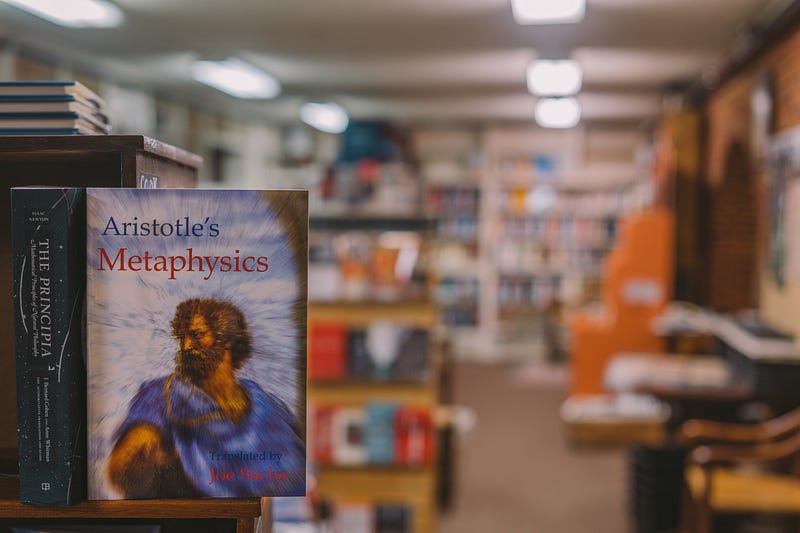A Discussion of Bourgeois Equality Chapter 40 “The Theology of Happiness Changed Circa 1700”
While last chapter, Dr. McCloskey explored the impact of the Radical Reformation movement on the church leading to a belief in self governance, in this chapter she explores the impact of changes in the theology of happiness.
In the early days of the Protestant reformation, a more Calvinist view dominated theology.
…(A)n infinite afterlife was infinitely to be preferred to any finite pleasure attainable in earthly life…Such fatalism in many religions…precluded talk of earthly happiness. (p.377)
McCloskey is arguing that the Great Enrichment needed people who believed in happiness in this life, not people resigned to the fate handed to them.
Infinitely lived Christians have no justified complaint if their lot in this present life is a burden. Again: take up your cross. Quit whining. (p. 378)
Yet, a quick look at any self-help list of books would clearly show we now care much about our personal happiness, perhaps a little too much!
When did this change happen and why?
Eudaimonia
McCloskey is giving us a history of people’s expectations of happiness in this chapter.
The Epicureans over 2000 years ago had a philosophy that saw eudaimonia as the goal, which can be interpreted as happiness. Really, it is more of how to live a life worth living or a life that would bring a sense of fulfillment. But unlike the Calvinists many years later, at least they considered it a goal.
In fact, the Catholic church the Calvinists rebelled against had held on to the idea of eudaimonia.
Eudaimonism is Catholic orthodoxy. The Second Vatican Council declared in 1965 that ‘earthly good and human institutions according to the plan of God the Creator are also disposed for man’s salvation and therefore can contribute much to the building up of the body of Christ. (p. 383)
If we only have a short historical framework, then we could be misled into thinking the focus on happiness in this life is new, but we see in fact the later Protestant embrace of that philosophy is actually a return to the way people had been thinking for thousands of years.
By 1800 in progressive circles in England and the United States the Calvinist otherworldliness had fallen away; replaced by an aggressively Evangelical movement quite determined to be its brother’s keeper in this life. Soon the non-Evangelicals in, say, the Church of England, came to a similar view. Such a social gospel during the nineteenth century served to animate abolition, missionaries, imperialism, anti-imperialism, prohibition, and Christian versions of socialism. (p. 380)
How does this impact the Great Enrichment?
Last chapter she argued the Radical Reformation led to an acceptance and expectation of self-governance having thrown off the hierarchy of the Catholic church. Here, she is asserting there is also a growing concern with the world and a desire to make it better that would ultimately contribute to the Great Enrichment taking hold.
But if McCloskey has shown us that the Catholic religion was comfortable with worldly concerns, why did the Great Enrichment not spring out of it? It was the hierarchical nature of the Catholic Church that prevented the individualism needed for the Great Enrichment.
Among the Roman Catholics the eudaimonism favorable to trade-tested betterment was regularly overcome by a strictly hierarchical church governance. (p. 384)
She notes that the “Radical Protestant” concern with worldly matters would also lead to being concerned with issues aligned with bourgeois betterment. (p. 380)
Joyce Appleby has shown that during the seventeenth century in England the conviction grew among formerly self-denying Protestants that capitalist betterment and consuming delight were ‘characteristics of human nature in general,’ and were therefore excused — nay, encouraged — by the Maker. (p. 382)
Thus, it is in the “Radical Protestant” movement that we get the combination of concerns for the world and people’s standard of living in it combined with a respect for individual liberty and pursuit of happiness that will lead to a nurturing environment for the trade-tested betterments to explode into the Great Enrichment.
Reference: McCloskey, Deirdre Nansen, 2016. “The Theology of Happiness Changed Circa 1700,” Chapter 40 of Bourgeois Equality, The University of Chicago Press.




